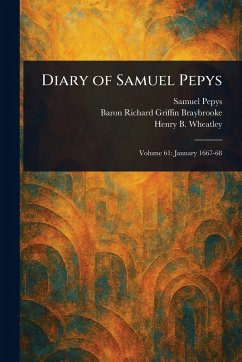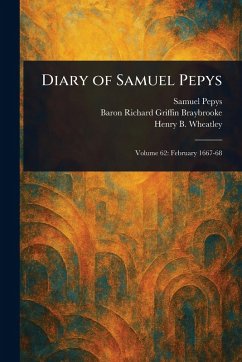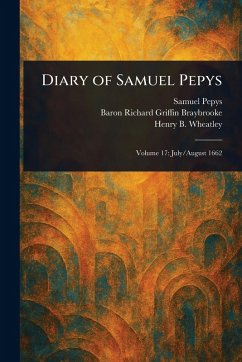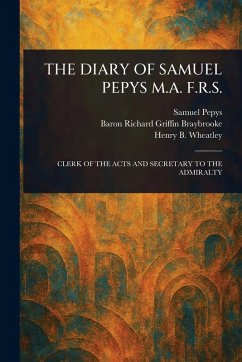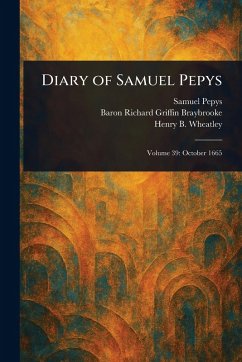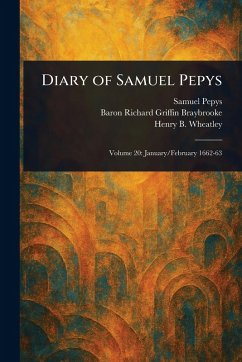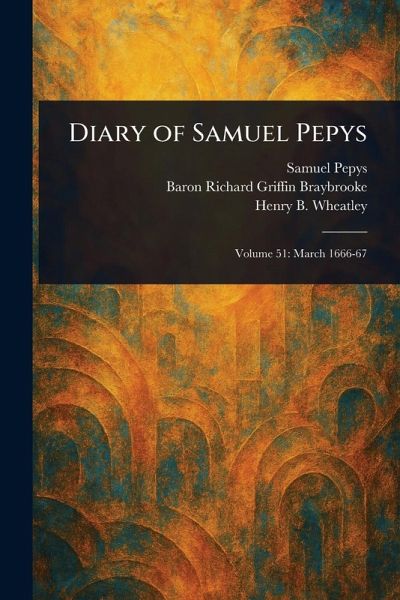
Diary of Samuel Pepys
Versandkostenfrei!
Versandfertig in über 4 Wochen
14,99 €
inkl. MwSt.

PAYBACK Punkte
7 °P sammeln!
Step back into 17th-century England with "The Diary of Samuel Pepys, March 1667," a captivating glimpse into a pivotal period of English history. Samuel Pepys's diary offers an intimate and invaluable historical record of the era of Charles II. This meticulously prepared edition provides firsthand insight into the daily life, significant events, and societal nuances of the time. Explore the political landscape, social customs, and personal reflections of a man living through momentous change. A key historical source for understanding Great Britain during the reign of Charles II, this diary is ...
Step back into 17th-century England with "The Diary of Samuel Pepys, March 1667," a captivating glimpse into a pivotal period of English history. Samuel Pepys's diary offers an intimate and invaluable historical record of the era of Charles II. This meticulously prepared edition provides firsthand insight into the daily life, significant events, and societal nuances of the time. Explore the political landscape, social customs, and personal reflections of a man living through momentous change. A key historical source for understanding Great Britain during the reign of Charles II, this diary is more than just a memoir; it's a window into the Renaissance and a powerful testament to the enduring fascination with the past. Delve into the world of Samuel Pepys and experience history as it unfolded. This work has been selected by scholars as being culturally important, and is part of the knowledge base of civilization as we know it. This work is in the public domain in the United States of America, and possibly other nations. Within the United States, you may freely copy and distribute this work, as no entity (individual or corporate) has a copyright on the body of the work. Scholars believe, and we concur, that this work is important enough to be preserved, reproduced, and made generally available to the public. We appreciate your support of the preservation process, and thank you for being an important part of keeping this knowledge alive and relevant.





